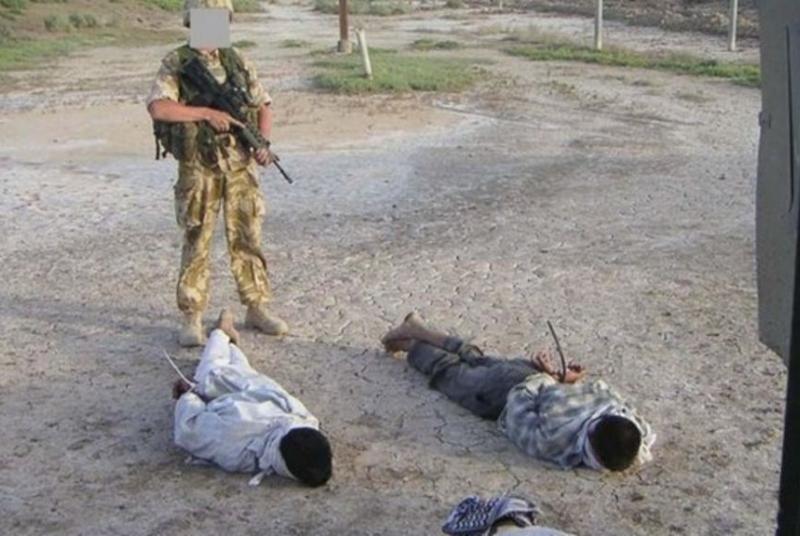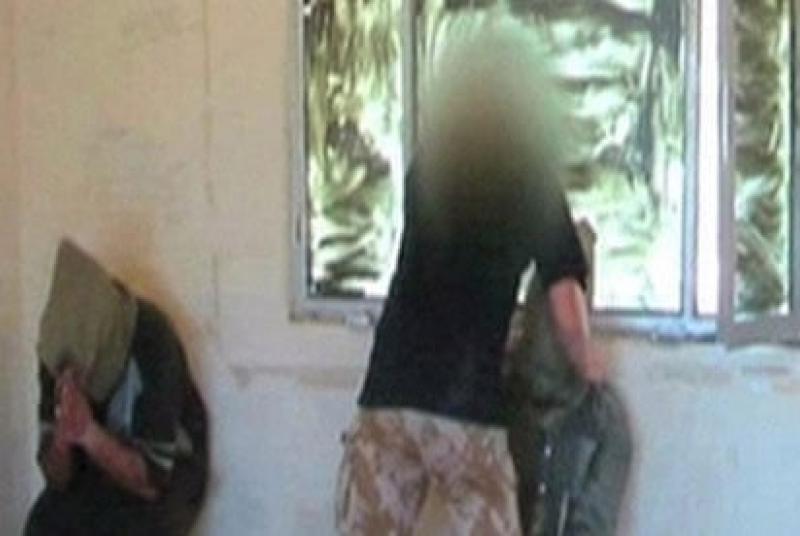Why British troops must not be above the law
At Freedom from Torture, we help survivors of torture heal through therapy every day. We know that finding justice for the crimes committed against them can be crucial for recovery.
Justice can confirm the unfairness of what the survivor endured, and restore some measure of control which their torturers tried to take away.
But the British government is seeking to introduce legislation that would prevent British soldiers from being prosecuted for crimes committed more than ten years ago during wartime abroad.
In practice, this would mean that British soldiers accused of committing war crimes, including torture, in Iraq and Afghanistan, would go unpunished.
Soldier or civilian, we believe that nobody should be above the law.
What is the government proposing?
The UK government says that once ten years have passed, soldiers should not face prosecution, perhaps even if they have committed serious war crimes, including torture.
The proposals also include introducing a new partial defence to murder and introducing a time limit on when civilian victims could claim compensation.

What do these proposals mean?
-
A barrier to justice
This would mean that if, after ten years, no charges have been brought against a former or current member of the Armed Forces for alleged crimes committed whilst on duty, it would be practically impossible to prosecute that person.
That means that after a certain time period, prosecutions won’t go ahead - unless in "exceptional circumstances". This could mean some people won't be held accountable for their actions and risks placing the military ‘above the law’.
These proposals ignore the fact that a number of protections already exist in the law to ensure that prosecutions are only brought in the right circumstances and therefore are not necessary.
-
Undermines international standing
For centuries the United Kingdom led the way in the evolution of an absolute ban on torture. Torture was ruled out by the English common law, and prohibited by the Magna Carta, as far back as the 13th century.
As a major military player on the global stage and permanent member of the UN Security Council, the UK plays an important role in the continued promotion of the international rules-based system that it helped to build.
The Armed Forces have a responsibility for upholding this global leadership, including by setting an example in relation to accountability for any torture or other ill-treatment committed by soldiers on the battlefield.
The government’s proposals risk sending a signal that the UK supports impunity for rape and sexual torture committed by its armed forces during conflict, thereby undermining its own Preventing Sexual Violence Initiative (PSVI).

-
Increases risk to British troops
Abiding by the rule of law actually protects British troops in the event of their capture during hostilities. It is difficult for the UK to demand compliance with international laws against torture and other ill-treatment from others if it doesn't follow them itself.
Britain played an active role in the creation of the International Criminal Court. The ICC becomes involved in prosecutions only if a domestic government refuses to prosecute serious war crimes, meaning that the UK was never expected to be a target of the Court’s investigations. That could now change.
-
Green light to copycats
Stepping back from our international obligations also carries the serious risk of “copycat” action by other states. Survivors of torture in therapy with us often warn that any failure by states such as the UK to deliver accountability for torture gives encouragement to torturers in the repressive countries they have fled that they can carry on without fear of consequences.
What is the solution?
The government says that it is introducing these proposals to protect British soldiers from ‘vexatious claims’. There is no doubt that justice is best served when there are prompt and thorough investigations followed by due process – both victim and the accused deserve no less.
If the government was serious about protecting the men and women that serve this country, it would commit to investigate allegations of abuse within a reasonable time limit and trust the legislation that already exists to protect victims and accused alike. Everyone should abide by the same laws – we are all safer that way.
About Freedom from Torture:
Around the world, torture is still used to silence and destroy lives. At Freedom from Torture, we provide specialist psychological therapy to help asylum seekers and refugees who have survived torture recover and rebuild their lives in the UK.
With survivors, we campaign for change in the UK and across the world. Together, we raise awareness and influence decision-makers about torture and its impact.


